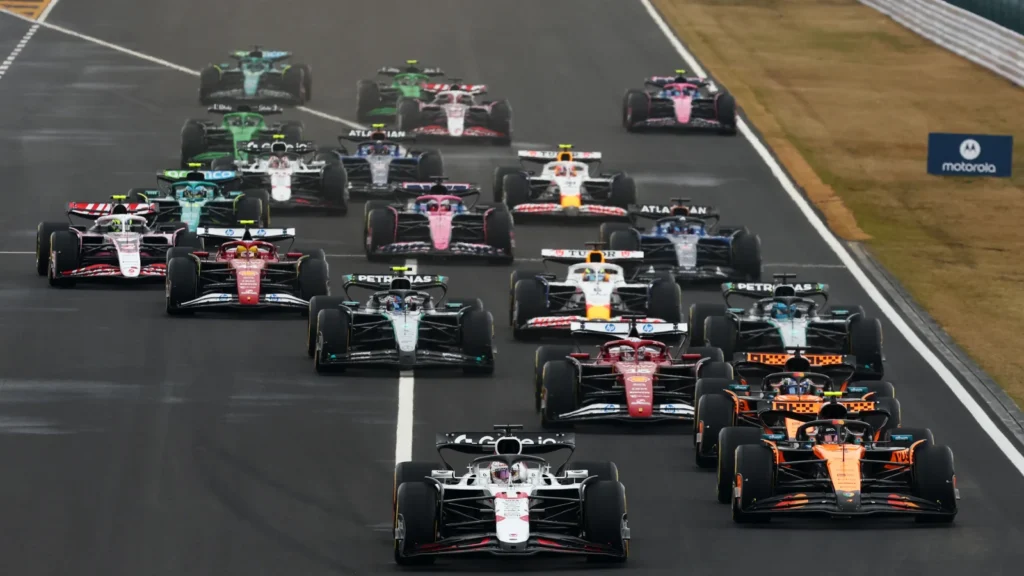Formula 1 will introduce fully sustainable fuel in 2026 but governing body, the FIA, hopes a “fuel war” can be averted through strict parameters.
F1 will make the next step in its Net-Zero Carbon by 2030 push when it introduces the use of fully sustainable fuels in 2026, alongside new power unit and technical regulations.
But just as there have been concerns regarding changes to the power units, there were fears over what the new fuel could mean for the championship, with some within the paddock initially suggesting that the fuels could be a larger performance differentiator than any of the other alterations.
Speaking in Bahrain, FIA Single Seater Director Nikolas Tombazis addressed these comments, conceding: “There were some fears about that early on. We have worked on a number of the chemical parameters of the fuel, also the energy content of the fuel in order to avoid an all-out fuel war, for example, that is something that we clearly don’t want in the sport.
“In the early stages of development, when the initial fuels that we are using for development were quite far from the final product, there was some big variation. But now, from what I understand, they are converging quite a lot, so we don’t expect a massive issue of that nature.”
A difficult balancing act for sustainable fuel
A key factor with the new fuels is that they remain road-relevant, something that is naturally of interest to manufacturers in the paddock, with the automotive sector under constant pressure to produce cleaner, less polluting machinery.
Balancing this need for the rapid development of sustainable fuels with the desire for close competition is no easy task, with a wider performance band required to push the technology likely to come at a cost to the competitive order.
Clarifying that the FIA wants to “drive technology and innovation in this field” to reduce greenhouse gas emissions as a principle, Tombazis added: “What we don’t want is to have a very F1-specific fuel war.
“That is why certain parameters – and I have to put my hand up here that I am not a fuel expert or chemist – some of the parameters like evaporation curves and all sorts of macro parameters which are important for the performance of the fuels have been kept by regulation as close as possible to things that are relevant for road cars in order to try to A: avoid a fuel war and B: also avoid Formula 1 going on a tangent to something that is totally irrelevant.
“But the main innovation will be in the methods of production and the methods the fuel suppliers use to bring down the costs and to get to the final product.”



